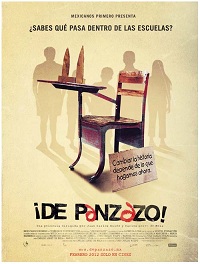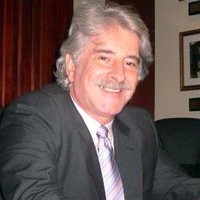AS/COA Online | Exclusive Interview: Juan Carlos Rulfo and Daniela Alatorre on the Making of ¡De Panzazo!
/ As the documentary ¡De Panzazo! explains, Mexico is the OECD member that spends the most on education in terms of public spending, yet its education system ranks last in terms of quality. ¡De Panzazo! (Barely Passing) director Juan Carlos Rulfo and producer Daniela Alatorre spoke with AS/COA Online’s Carin Zissis after the film’s New York premiere on June 4 at Americas Society. With the support of civil society group Mexicanos Primero, the documentary calls for quality education and teacher evaluations in Mexico. Rulfo and Alatorre explain how they became involved in the project, involving Mexican students in the film’s production, the need to share best educational practices on an international level, and the impact of the film during a Mexican election year.
As the documentary ¡De Panzazo! explains, Mexico is the OECD member that spends the most on education in terms of public spending, yet its education system ranks last in terms of quality. ¡De Panzazo! (Barely Passing) director Juan Carlos Rulfo and producer Daniela Alatorre spoke with AS/COA Online’s Carin Zissis after the film’s New York premiere on June 4 at Americas Society. With the support of civil society group Mexicanos Primero, the documentary calls for quality education and teacher evaluations in Mexico. Rulfo and Alatorre explain how they became involved in the project, involving Mexican students in the film’s production, the need to share best educational practices on an international level, and the impact of the film during a Mexican election year.

